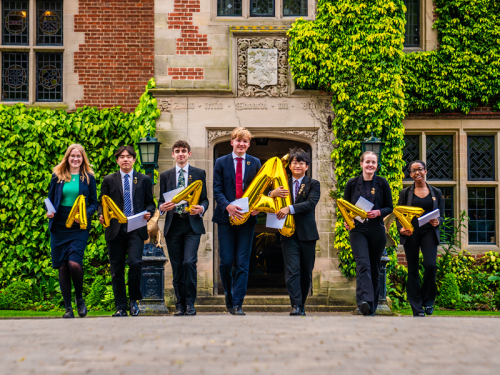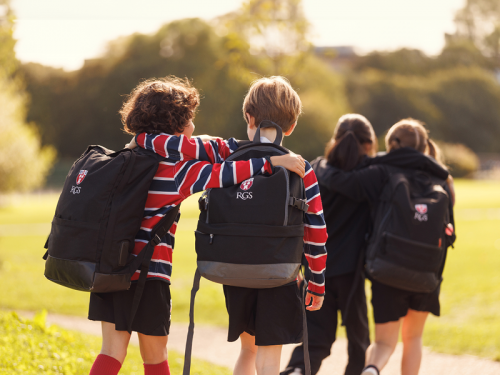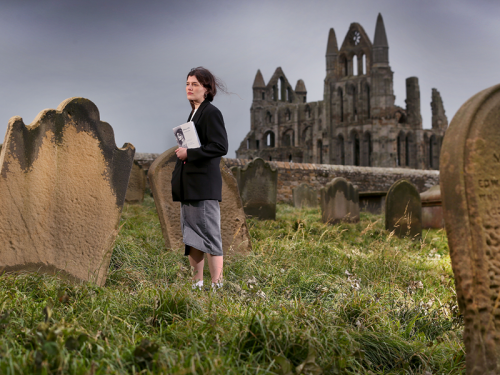North East Teachers Share the Benefits of Co-Curricular Activities
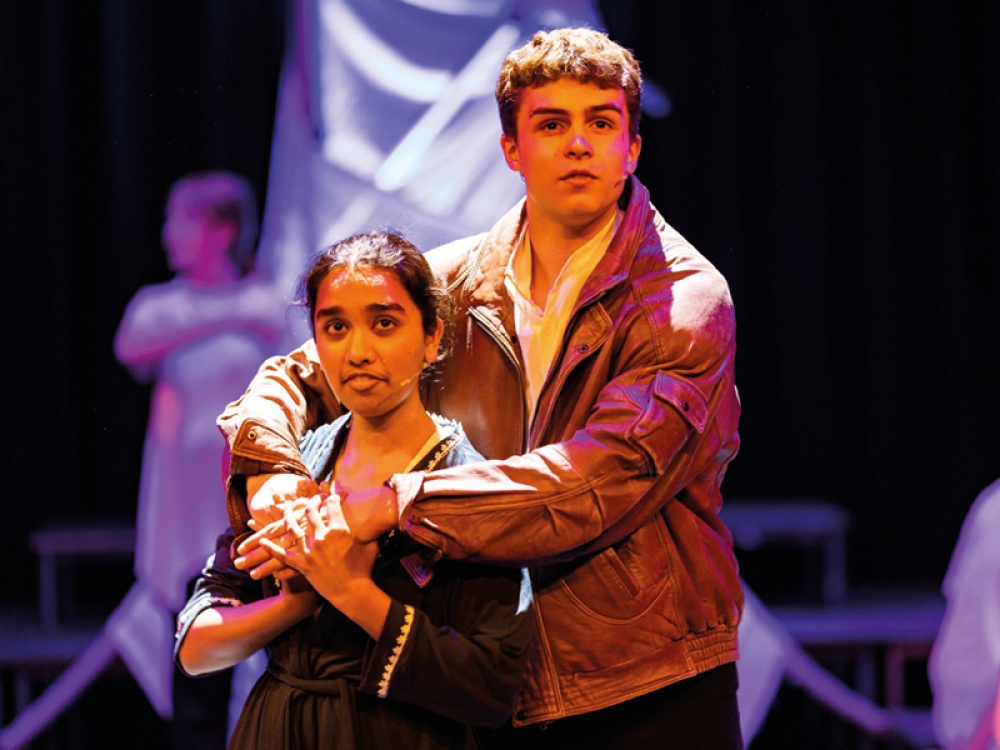
The North East's leading schools share the benefits of their co-curricular activities
Young people spend a lot of time at school, and director of co-curriculum at Dame Allan’s Schools, Paul Terry, says it is important that they use this time to learn, grow, and have fun. ‘A school’s co-curricular programme is an integral part of its ethos and character,’ he says. ‘At Dame Allan’s, we are passionate about offering outstanding opportunities for all of our pupils and we embody this by offering 200 co-curricular activities each week for pupils to take part in.’
Co-curricular opportunities vary from school to school depending on facilities and staffing, and Paul says it is important to consider this offering when selecting a school. ‘Parents will find that their child is likely to settle in a lot more comfortably and to make friends more easily if they can take part in a co-curricular activity they already have some interest or familiarity with,’ he suggests.
‘At Dame Allan’s, we encourage every pupil to take part in at least two co-curricular activities a week, as part of our desire to nurture the whole child. My role is fully dedicated to developing and championing our co-curricular programme. We have so many fantastic staff who take the time to run some amazing activities: from our Combined Cadet Force to dance, plant club, art club and e-sports.’
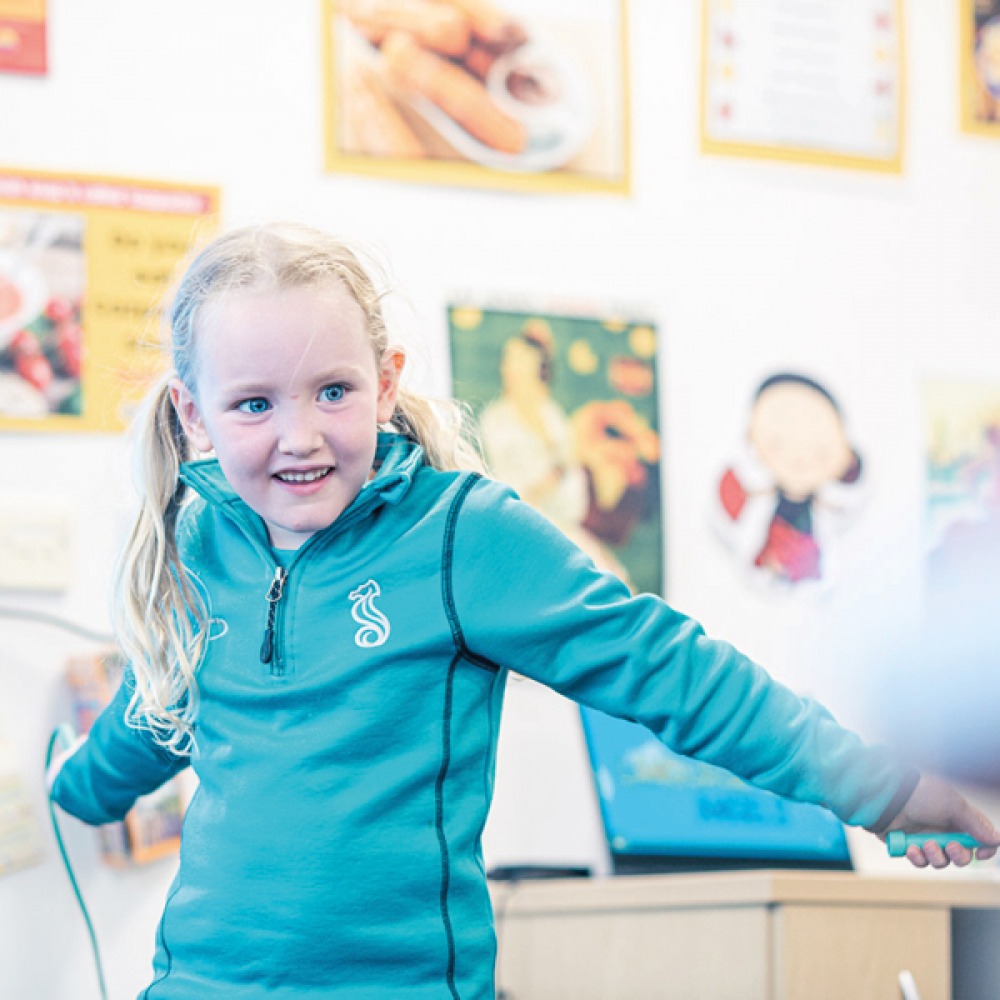
Getting involved in a co-curricular activity benefits further education and later life. ‘Trying something new can be daunting at any age, but learning to face those nerves and develop a “give it a go” mindset, is a hugely valuable skill that we hope to develop in our pupils from their earliest days in the Junior School, right up to Sixth Form,’ explains Paul. ‘Bravery and confidence are fostered by trying new activities, plus a level of resilience from learning to try again if you find you are not an expert at it the first time. Co-curricular pursuits also encourage our pupils to develop vital communication skills, work on problem solving (particularly in puzzle club!), and to develop leadership skills. All of these attributes will hold them in good stead for their future, as they progress through education and into their future careers.
Paul is keen to share some success stories from Dame Allan’s offering. ‘Brothers James and Thomas credited Dame Allan’s Climbing Club in helping them to hone their skills and confidence before taking on the World and European Championships in Obstacle Course Racing,’ he begins. ‘Pupils William and Nasif both excelled in e-sports commentating, after being involved in the e-sports club at Dame Allan’s. They went on to take part in a national competition for e-sports commentary, acing the semi final in Liverpool before sadly being knocked out of the finals in London.
‘The Duke of Edinburgh scheme is an area of pride at Dame Allan’s. The school has one of the highest rates of uptake for the DofE award scheme in the North, with hundreds of pupils working their way through the Bronze, Silver, and Gold levels. Last year, those who successfully completed their Gold Award were invited to a special ceremony at Buckingham Palace to mark their incredible achievements and contributions to the community.’
Andrew McBride, the Deputy Head (co-curricular) at Royal Grammar School Newcastle (RGS) believes that one of the most important things a teenager needs in order to navigate their adolescence is to feel confident and secure in their sense of self. ‘Enabling this relies upon the offering of multiple opportunities to ensure they can connect with others and deeply belong to the institution they are enrolled in,’ he says. ‘Being a part of a school is so much more than putting on the uniform and turning up each day.
‘The lifelong memories and friendships that are formed from your time at school usually relate to things you do outside of the core curriculum, for example, the trips, the sports teams, the music and drama performances that you get to enjoy and experience with your friends. An extensive co-curricular programme ensures every student can find their niche, experience failure in a low-stakes environment, practice their leadership and character development all within the confines of things that are fun and engaging.’
Co-curricular activities prepare students for life beyond school in different ways. ‘For example, a Duke of Edinburgh expedition relies heavily on team work, planning and organisation,’ says Andrew. ‘Taking part in a drama production or musical performance relies upon rehearsing well, presenting yourself and getting over those first-night nerves in front of an audience. The sports field is a place to test your humility when you win, ability to cope with the feelings of losing, when you don’t and develop an understanding that the thing you are doing with your teammates is much bigger than your own needs or wants. These are all things that make you a more attractive employee, but also a more wholesome friend, parent and partner as you begin to take steps into the wider world.’
In everything they do at RGS, staff want to place a sense of kinship with peers, Andrew explains. At RGS students can choose from more than 170 co-curricular activities across both the Junior and Senior Schools. ‘The Fabricarium, a girls-only gaming design space and ArchSoc, a research-focused group using the school archive, highlight RGS’s commitment to providing activities that cater to all interests,’ says Andrew. ‘No matter what your child is passionate about, the staff ensure there’s a space for them to thrive at RGS.’
Some students find success in joining a new club and making a new set of friends. ‘For some, getting organised, turning up on time and being a friendly face for others is the success story,’ adds Andrew. ‘For others, it is working hard to be selected to represent their country at a World Cup or Olympic Games. Anything and everything in between is a success story worth sharing if it is done with an alignment to our school values. Attitude is everything and we want to create students with the character, disposition and habits to make a positive mark on the world, no matter how small or vast that may be.’
Charlotte Knowles, extra curricular co-ordinator at Westfield School (which has recently been shortlisted for the ‘Small Independent School of the Year’ Award), says an extra-curricular timetable can tell a lot about the style, aims and ethos of a school. ‘At Westfield, we offer a wide range of exciting and interesting club activities which run alongside the usual homework and sports clubs you would expect at most independent and state schools,’ says Charlotte. ‘We believe that non-academic clubs, such as Mindfulness, Robotics, UNESCO and Animation, can help to improve mental health and keep our students’ minds fresh and ready to engage in lessons. Research suggests that extra-curricular activities are a valuable investment and students who participate in them tend to have higher grades and a better educational experience in general.’
Staff at Westfield also believe that extra curricular activities boost a young person’s confidence and help them to interact socially with others. ‘They provide them with new skills and abilities but above all, they offer an important opportunity to have fun and relax, away from the pressures of school work,’ Charlotte adds. ‘We also believe that extra curricular activities not only increase academic performance, they help to promote time management skills; all important qualities which help students to make progress and grow as individuals in preparation for life beyond school. Education at Westfield is tailored to the individual. We don’t believe in a one size fits all; our creative curriculum and fantastic teachers will ensure that your daughter’s success is our focus.’
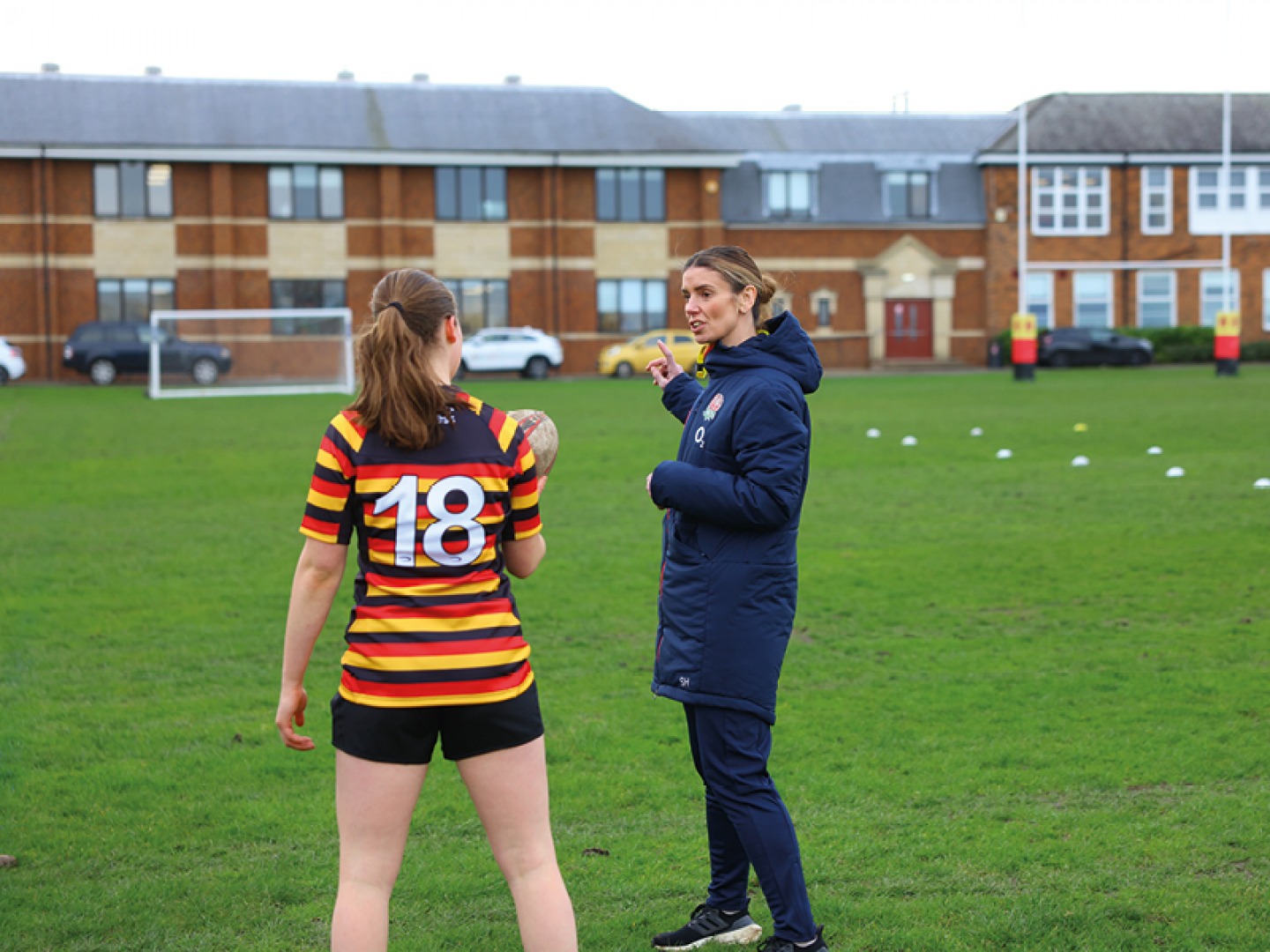
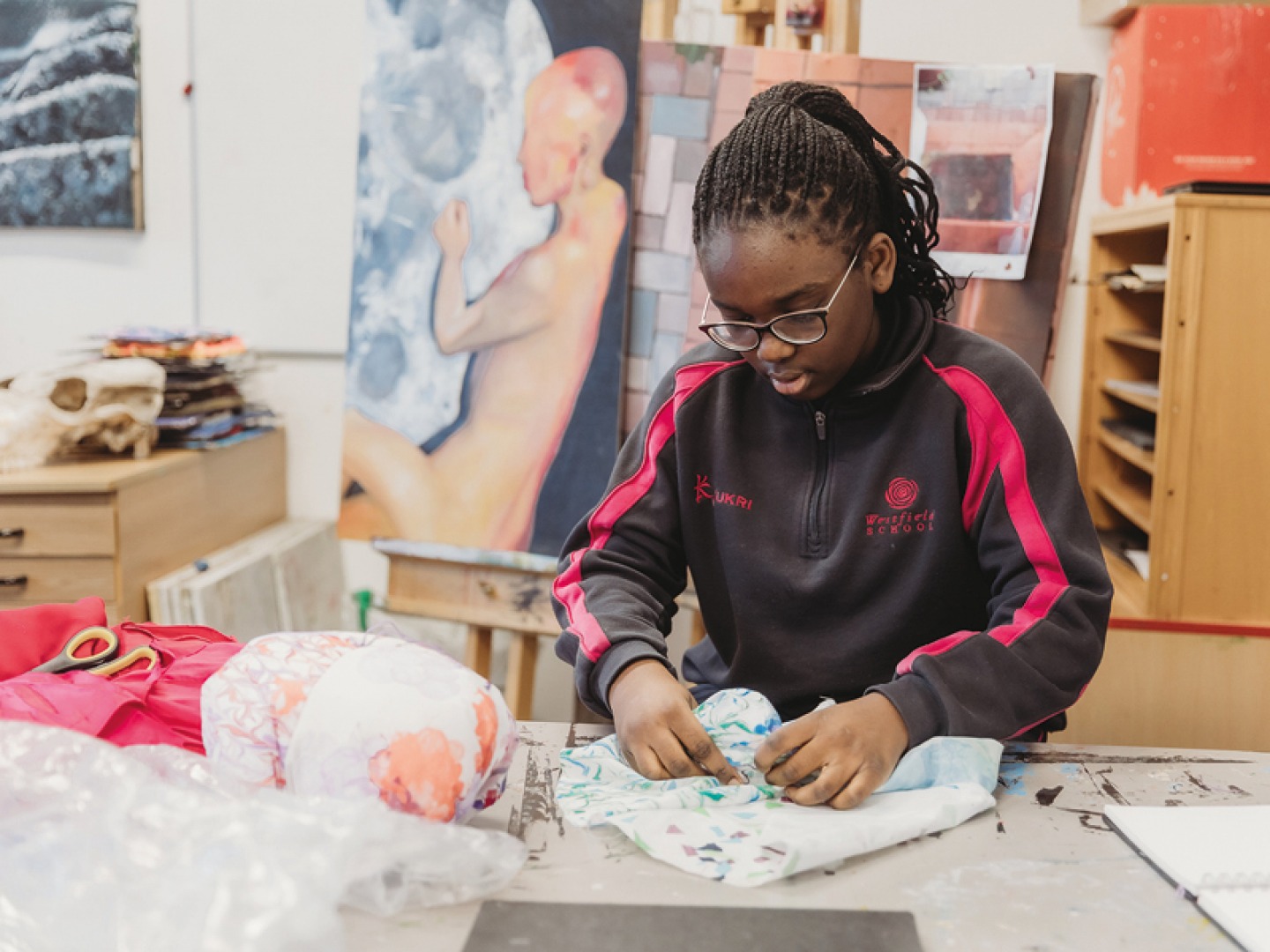
At Newcastle High School for Girls (NHSG) co-curricular activities form an integral part of the wider educational offer by helping in building social skills (activities like sports, drama, and clubs encourage teamwork, communication, and leadership) and enhancing academic performance – studies show that pupils involved in co-curricular activities often perform better academically. They also help in developing interests and talents and improving time management, balancing academics and co-curricular activities, teaching NHSG pupils how to manage their time effectively.
Some NHSG students have developed a love of sport leading them to become a GB athlete, others found a passion in drama and have headed to the West End. ‘There are also so many pupils who have extended their learning in a subject area through the co-curricular programme who have gone on to achieve great things, for example, in the world of STEM, where alumna and engineer Rosie Hurcombe is now working in Formula 1 for Red Bull Racing and Red Bull Technology,’ says head Amanda Hardie.
‘At NHSG, we aim to equip our pupils with the skills they need in life beyond school so that they can go out into the world to be the trailblazers, leaders and help shape the word around them for the better,’ says Amanda. ‘We work to support the girls to develop the NHSG seven Cs: creative; caring; composed; communicative; courageous; confident, collaborative. Our co-curricular programme not only supports these learning characteristics but prepares girls for the future by fostering soft skills like problem-solving, critical thinking, and adaptability, honed through various activities; building a strong resume (participation in diverse activities can make UCAS applications and job resumes stand out); encouraging lifelong learning (these activities instil a love for learning and personal growth beyond the classroom) and networking opportunities. Girls at NHSG can build connections with peers, mentors, and professionals through our support from our alumnae network, the GDST, and the wider professional community, that can be valuable in the future.’
Visit each individual school’s website for more information and key dates.




